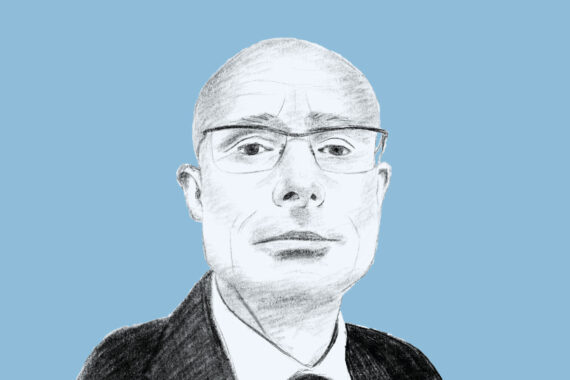Columnist Dr David Turner on the computerisation of the NHS
Now, I would say I don’t trust computers further than I can throw them, but that wouldn’t be true. There are days I reckon I could win a gold medal at PC-lobbing, if the Olympic games ever introduce such a category.
Computerisation may be the best thing since sliced bread in some areas of human endeavour. But in the NHS, in my experience, IT is at best a necessary evil and at worst a malignancy. I don’t use these words lightly; I mean by this that computerisation is allowing the powers-that-be to snoop ever more intrusively into our work in primary care.
There seems to be an assumption that any task that can be done electronically should be done that way, and that the computerisation of things is always better. This is where the naked emperor comes in; both of those assumptions are nearly always wrong in the NHS.
Don’t take my word for it. A quick flick through recent news stories should be enough to make us very worried about entrusting ever-increasing amounts of healthcare data to electronic circuitry. Patient data being leaked by cyber attacks, IT failures causing patient death, and cover ups just to name a few.
These are the big picture problems with IT. The smaller stuff is the everyday irritations that grind us all down. The 10 minute wait to log on in the morning. The frequent computer crashes during the working day. The electronic referral forms, which seem to be designed as a test of GPs’ patience and persistence – the reward being that your patient may get put on a several month-long waiting list to see a specialist, who will invariably bounce the patient back to the GP with A&G, and a list of jobs for the family doctor to do unfunded. I often daydream about when I used to dictate referral letters. When I would address a specialist by name and – yeah, this is the weird part – tell them what was wrong with the patient and why they needed to be seen. Halcyon days indeed.
Computerisation was sold to us as a means of making healthcare easier to deliver. And at the most basic level (legible notes and repeat prescribing) this might just be true. It is everything that has happened in the IT development of our systems since this point that seems to have been designed to data harvest and spy on us and at the most sinister level, ready us to be hoovered up by the private sector.
If you need evidence for my paranoia, you need look no further than the recent events concerning the emergency action to warn practices to urgently switch off the GP Connect Update Record function on their IT systems. We were advised that NHSE were about to disable this switch-off option. Potentially this could lead to third parties entering data into our GP records, which we (as data controllers )would have responsibility for and ironically no control over.
It would be hard to imagine a better example of an Orwellian/Kafkaesque hybrid scenario playing out in front of us.
Or maybe I just can’t recognise a nice new outfit of clothes?
Dr David Turner is a GP in Hertfordshire

















David – sad to say you already are fully responsible for the patient’s record and have no control over it. It is hosted at a remote server, over which you have no control, and you are only allowed temporary and dhort-term partial access to it. You no longer have any say over it at all, other than temporary permission to edit some parts of it. Do you even know where Mrs Thomas’ electronic records are stored?
indeed it was so much better in my day, why did we ever get rid of faxes, signing FP10 and printing out referral forms, phoning patients to tell them of results or even better writing a letter. Everything was better in past….